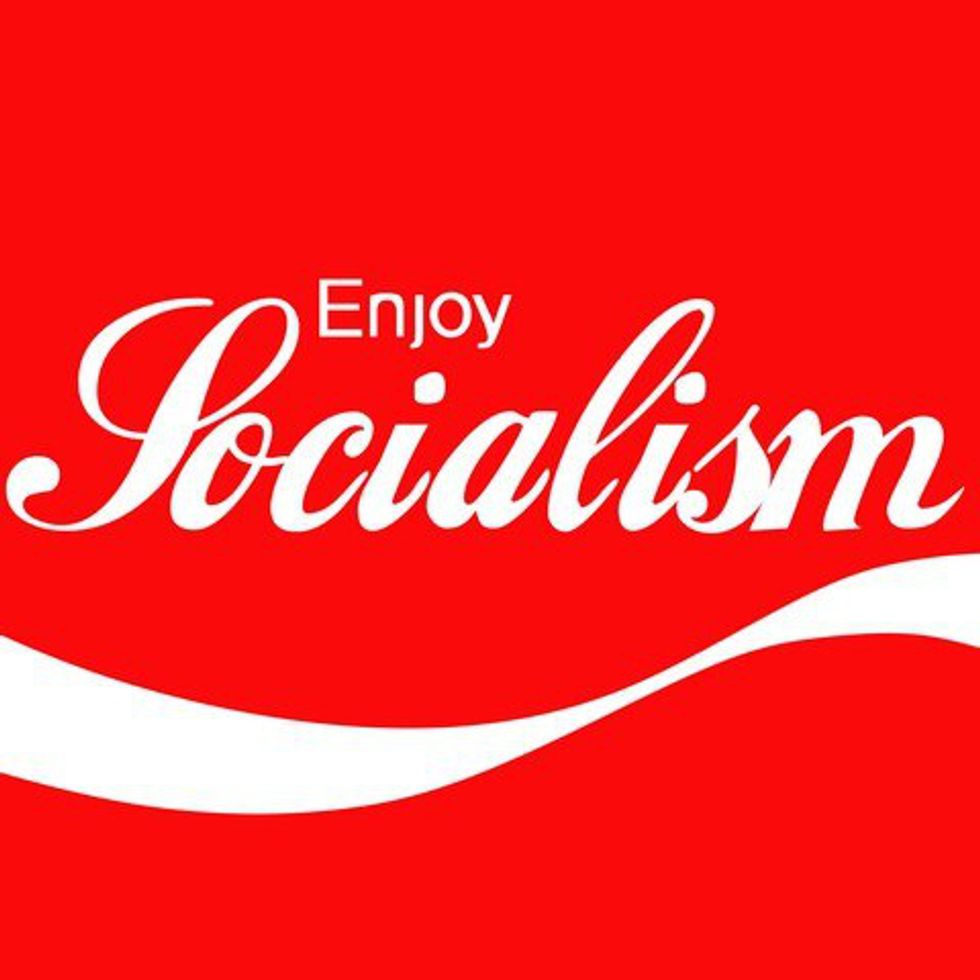Thanks to the power of the Internet, people today can broadcast their thoughts to the world with a press of a button. Because we can connect with millions of people so easily, we are faced with new issues almost every day. One such issue that has exploded into recent news headlines is socialism.
With the presidential election swiftly approaching, the campaign trail has heated up with candidates taking the stage in an attempt to win the vote. One integral part of a campaign is the main issue or issues that a candidate takes on. One candidate, in particular, is responsible for the exponentially large growth of interest in socialism in the past year. You most likely know exactly the candidate to whom I am referring: Bernie Sanders.
Sanders, a congressman for 26 years and an extremely popular democratic presidential candidate, has devoted his campaign to advocating for the principles of democratic socialism. According to his campaign website, Sanders supports such socialist ideas as free college tuition, expanding social security and welfare, raising corporate tax rates, and redistributing wealth through higher taxes on the rich. Many people, particularly millennials, favor these principles and have overwhelmingly supported Bernie Sanders' campaign. And while socialism has a distinct advantage in that it theoretically fosters equality, many other disadvantages outweigh the proposed good of socialism. Before the pros and cons of this system can be examined, however, we must first understand exactly what democratic socialism is.
Dictionary.com defines democratic socialism as "a form of socialism with a democratic government; the ownership and control of the means of production, capital, land, property, etc., by the community as a whole -- combined with a democratic government." Basically, democratic socialism seeks to bring about political, social, and economic equality. A democratic government allows for the participation of all citizens in the government while socialism allows everyone to own a portion of everything. For example, under socialism, the government would tax the income of individuals and redistribute it for everyone to have a part of it. The welfare system in our country today operates in a similar way. In addition, the tax on individuals (as well as on privately owned corporations) would be used to fund free college tuition, universal health care, and other social programs.
Now that we have a working definition of democratic socialism and understand the advantage it possesses in the form of equality, we must also examine the dangers that it poses. While many potential dangers exist, I will be analyzing two of the currently popular socialist ideas: free college tuition and raising corporate tax rates.
Free college tuition initially sounds extremely appealing, especially to younger members of society. After all, being able to receive a college education without having to pay the insanely high cost seems to be the solution to many of America's problems. Taking a closer look at the issue, however, reveals some major defects of this plan. Kevin James, a fellow with the Center for Higher Education Reform, says, "The idea would cost $70 billion per year, more than twice what the federal government spends on Pell grants." The government would have to dish out billions of dollars to implement this idea. Of course, higher spending by the government translates to higher taxes for the citizens. In addition to the high cost, the quality of education under a free tuition system would suffer. James posits that "such a proposal [of free tuition] is more likely to create a system that is rigid, bureaucratic and unresponsive to the changing needs of students and the economy over time." The bigger the hand of government is in colleges, the greater will be the inability of colleges to meet the educational needs of students.
Furthermore, much of the government funding for this program and others like it will come out of the pockets of not only many Americans, but also privately owned corporations. For years, a great debate has been taking place about taxing large corporations. Conservatives tend to favor lower taxes on these corporations while liberals often opine about the need to tax so-called "Big Business." Under a socialist system, the tax on corporations would shoot up, which would cause some serious problems to develop. Perhaps most significant is the effect that higher corporate tax rates would have on American jobs. According to Aparna Mathur, a resident scholar in economic policy studies at the American Enterprise Institute in Washington, D.C, "The U.S. loses investment as a result of uncompetitive tax rates." In other words, when corporate tax rates are high, businesses take their jobs overseas to countries with lower tax rates and cheaper wages. Consequently, fewer jobs are created here in the U.S. and unemployment skyrockets.
Democratic socialism has certainly been receiving much attention over the course of the past year, and much of it has been positive. Of course, every issue has its advantages as well as disadvantages. The advantage of socialism is found in its fostering equality across the board for U.S. citizens. The disadvantages, however, are severe and will punish citizens with higher taxes and less job creation. As citizens of the U.S., our duty is to examine each issue that will directly and indirectly impact our lives. Staying informed about current events and developments in the government and in society as a whole will allow us to contribute to our society in a better, more insightful way.























